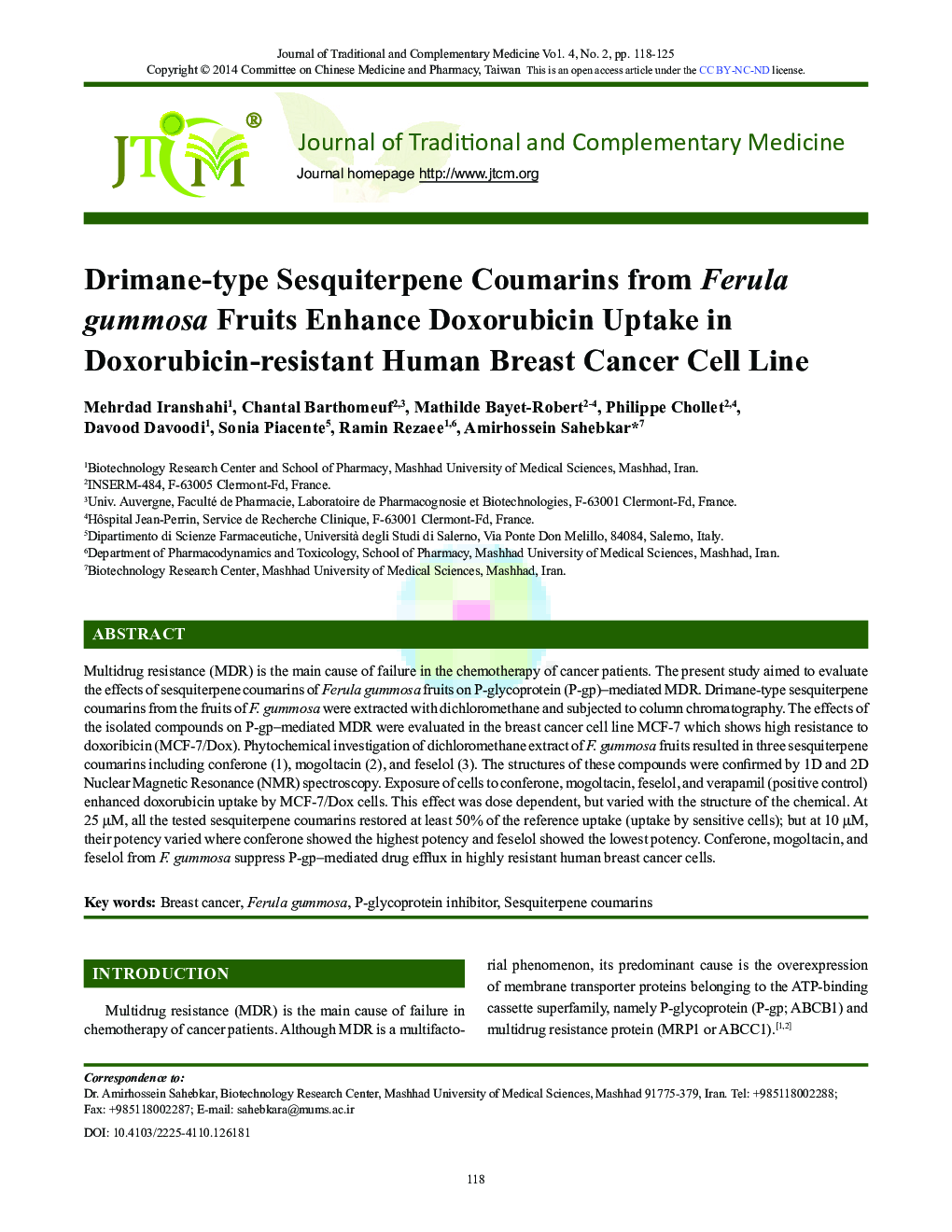| Article ID | Journal | Published Year | Pages | File Type |
|---|---|---|---|---|
| 3099928 | Journal of Traditional and Complementary Medicine | 2014 | 8 Pages |
ABSTRACTMultidrug resistance (MDR) is the main cause of failure in the chemotherapy of cancer patients. The present study aimed to evaluate the effects of sesquiterpene coumarins of Ferula gummosa fruits on P-glycoprotein (P-gp)–mediated MDR. Drimane-type sesquiterpene coumarins from the fruits of F. gummosa were extracted with dichloromethane and subjected to column chromatography. The effects of the isolated compounds on P-gp–mediated MDR were evaluated in the breast cancer cell line MCF-7 which shows high resistance to doxoribicin (MCF-7/Dox). Phytochemical investigation of dichloromethane extract of F. gummosa fruits resulted in three sesquiterpene coumarins including conferone (1), mogoltacin (2), and feselol (3). The structures of these compounds were confirmed by 1D and 2D Nuclear Magnetic Resonance (NMR) spectroscopy. Exposure of cells to conferone, mogoltacin, feselol, and verapamil (positive control) enhanced doxorubicin uptake by MCF-7/Dox cells. This effect was dose dependent, but varied with the structure of the chemical. At 25 μM, all the tested sesquiterpene coumarins restored at least 50% of the reference uptake (uptake by sensitive cells); but at 10 μM, their potency varied where conferone showed the highest potency and feselol showed the lowest potency. Conferone, mogoltacin, and feselol from F. gummosa suppress P-gp–mediated drug efflux in highly resistant human breast cancer cells.
